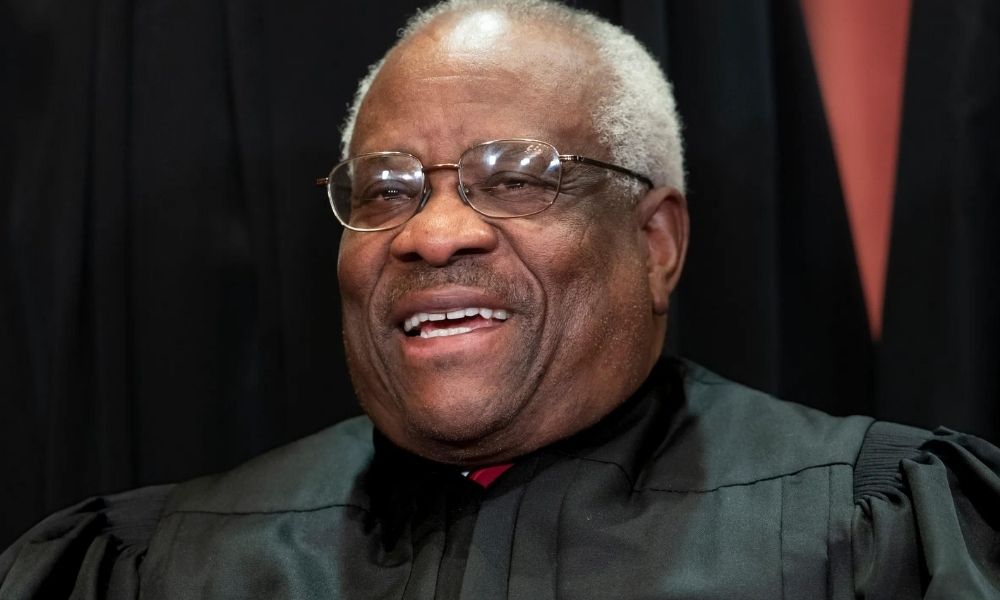Affirmative action has been a controversial topic in the United States for decades. It is a policy that aims to promote diversity and equal opportunities for historically marginalized groups, such as women and people of color, in education and employment. However, one question that often arises is whether or not individuals who have benefited from affirmative action have truly earned their success. This is especially true for Clarence Thomas, the second African American to serve on the United States Supreme Court. Thomas has been a vocal critic of affirmative action, yet he himself has been accused of benefiting from it. In this article, we will explore the question: did Clarence Thomas benefit from affirmative action?
Contents
The Background of Affirmative Action
Affirmative action was first introduced in the United States in the 1960s as a way to address the systemic discrimination and inequality faced by women and people of color. It was initially implemented through executive orders by President John F. Kennedy and later expanded by President Lyndon B. Johnson. The goal of affirmative action was to level the playing field and provide equal opportunities for underrepresented groups in education and employment.
One of the key components of affirmative action is the use of quotas or goals to ensure that a certain percentage of women and people of color are admitted to universities or hired for jobs. This has been a highly debated aspect of affirmative action, with opponents arguing that it leads to reverse discrimination against white men.
Read:What is parisi?The Case of Regents of the University of California v. Bakke
In 1978, the Supreme Court heard the case of Regents of the University of California v. Bakke, which challenged the use of racial quotas in university admissions. The case involved Allan Bakke, a white man who was denied admission to the University of California, Davis Medical School, despite having higher grades and test scores than some of the minority students who were admitted through the school’s affirmative action program.
The Supreme Court ruled in a 5-4 decision that while the use of quotas was unconstitutional, race could still be considered as a factor in admissions decisions to promote diversity. This decision set the precedent for how affirmative action would be implemented in the years to come.
Clarence Thomas’ Stance on Affirmative Action
Clarence Thomas has been a vocal opponent of affirmative action throughout his career. In his book, “My Grandfather’s Son,” Thomas wrote, “I have always believed that affirmative action is a bad idea, and that it is bad for the very people it is supposed to help.”
Thomas argues that affirmative action perpetuates the idea that people of color and women are not capable of succeeding on their own merit. He also believes that it creates a sense of entitlement and victimhood among those who benefit from it.
Read:What happened to kirstin and jerrold divorce?Thomas’ stance on affirmative action has been consistent throughout his career. In 1991, during his confirmation hearings for the Supreme Court, he famously referred to affirmative action as “a high-tech form of discrimination.” He has also consistently voted against affirmative action in cases that have come before the Supreme Court.
The Controversy Surrounding Thomas’ Nomination to the Supreme Court
Despite his strong opposition to affirmative action, Thomas’ nomination to the Supreme Court in 1991 was met with controversy. Many critics argued that he was not qualified for the position and was only being considered because of his race.
Thomas’ nomination was also met with accusations of sexual harassment by Anita Hill, a former colleague of Thomas’ at the Equal Employment Opportunity Commission. Hill testified before the Senate Judiciary Committee, alleging that Thomas had made inappropriate sexual comments and advances towards her while they worked together. Thomas denied these allegations and was ultimately confirmed to the Supreme Court by a narrow margin.
Some critics saw Thomas’ nomination as a way for the Republican party to gain support from African American voters, as he would be the second African American to serve on the Supreme Court. This raised questions about whether or not Thomas had truly earned his position on the Court or if he had benefited from affirmative action.
Read:What happened to laura becker kare 11?Did Clarence Thomas Benefit from Affirmative Action?
The question of whether or not Clarence Thomas benefited from affirmative action is a complex one. On one hand, Thomas has been a vocal opponent of affirmative action and has consistently voted against it in his role as a Supreme Court Justice. On the other hand, his nomination to the Court was met with controversy and accusations of being unqualified and only being considered because of his race.
There is no clear answer to this question, as it ultimately depends on one’s perspective. However, there are some factors that should be considered when examining Thomas’ career and the role that affirmative action may have played in it.
Thomas’ Education and Early Career
Clarence Thomas grew up in poverty in rural Georgia and was raised by his grandparents. Despite facing many challenges, he excelled academically and earned a scholarship to attend the College of the Holy Cross, a prestigious liberal arts college in Massachusetts.
After graduating from Holy Cross, Thomas went on to attend Yale Law School, where he was one of only a few African American students in his class. He graduated with honors and went on to work for Missouri Attorney General John Danforth, who would later become a U.S. Senator and play a key role in Thomas’ nomination to the Supreme Court.
It is worth noting that Thomas’ academic achievements and early career success were not solely due to affirmative action. He worked hard and overcame many obstacles to get where he is today. However, it is also important to acknowledge that affirmative action may have played a role in his admission to Holy Cross and Yale Law School, as these institutions have historically had low enrollment of African American students.
The Role of Networking and Connections
Networking and connections play a significant role in career success, and this is especially true for those in positions of power and influence. It is no secret that Clarence Thomas had powerful connections that helped him throughout his career.
One of these connections was John Danforth, who played a key role in Thomas’ nomination to the Supreme Court. Danforth was also instrumental in helping Thomas secure a position on the U.S. Court of Appeals for the District of Columbia Circuit, where he served for 16 months before being nominated to the Supreme Court.
It is worth considering whether or not Thomas would have been able to achieve the same level of success without these powerful connections. Affirmative action may have played a role in opening doors for Thomas, but it was ultimately his connections and networking that helped him climb the ladder of success.
The Impact of Thomas’ Nomination on Affirmative Action
One could argue that Clarence Thomas’ nomination to the Supreme Court had a significant impact on affirmative action. As a vocal opponent of the policy, Thomas’ presence on the Court has shifted the balance in favor of those who seek to limit or eliminate affirmative action.
In 2003, the Supreme Court heard the case of Grutter v. Bollinger, which challenged the use of race as a factor in admissions decisions at the University of Michigan Law School. In a 5-4 decision, the Court upheld the use of race as a factor in admissions, with Justice Thomas being one of the four dissenting votes.
It is worth considering whether or not Thomas’ position on the Court has influenced the decisions made in cases involving affirmative action. If so, then it could be argued that he has indirectly benefited from affirmative action by being in a position to shape policies that he himself opposes.
Conclusion:
So, did Clarence Thomas benefit from affirmative action? The answer is not a simple yes or no. While Thomas has been a vocal opponent of affirmative action and has achieved success through hard work and determination, there are also factors that suggest he may have benefited from the policy in some ways.
Ultimately, the question of whether or not Thomas benefited from affirmative action is not as important as the larger conversation about the effectiveness and fairness of the policy. Affirmative action continues to be a controversial and divisive issue, and it is important to continue examining its impact and making efforts to promote diversity and equal opportunities for all individuals, regardless of their race or gender.
As for Clarence Thomas, his legacy will continue to be debated and scrutinized, but one thing is certain: he has made a significant impact on the Supreme Court and the country as a whole, and his story serves as a reminder of the complexities and nuances of affirmative action.








